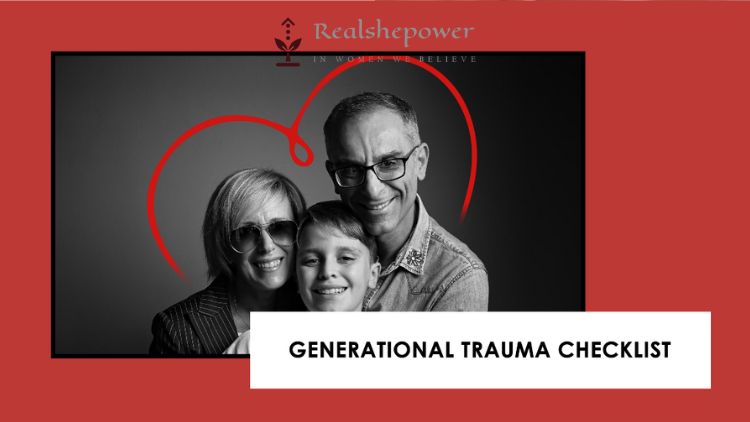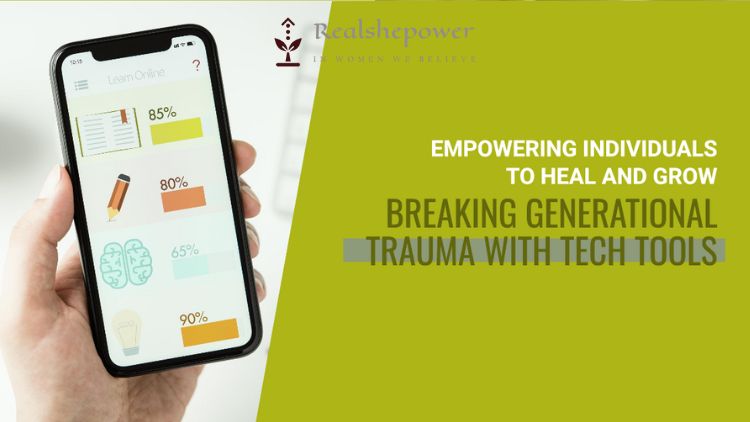5 Signs You Might Be Carrying Generational Trauma: An Easy-to-Understand Checklist for Self-Awareness


5 Signs You Might Be Carrying Generational Trauma
Have you ever wondered why you have a specific fear or behave in a certain way, even though there seems to be no logical explanation? It’s possible you might be carrying the weight of generational trauma – the emotional and psychological imprint passed down through families.
This unseen baggage can manifest in various ways, impacting your relationships, career, and overall well-being. But the first step to healing is recognizing the signs. Here’s an easy-to-understand checklist for self-awareness to see if generational trauma might be playing a role in your life:

1. Unexplained Fears and Anxieties:
Do you have a paralyzing fear of public speaking, even though you’ve never had a bad experience? Or maybe you have an irrational anxiety about spending money, despite having a stable income. These seemingly unfounded fears could be rooted in your family history. Perhaps a grandparent experienced a traumatic event like a public humiliation or financial hardship, and those anxieties have been unconsciously passed down through generations.
2. Repetitive Negative Patterns:
Do you find yourself constantly drawn into toxic relationships, or struggling with substance abuse problems? This could be a sign that you’re unconsciously repeating unhealthy patterns established by previous generations. Maybe your parents had a tumultuous marriage, or a close relative dealt with addiction. These experiences can create a blueprint for behavior, subconsciously influencing your own choices.
3. Difficulty Expressing Emotions:
Did your family tend to avoid talking about painful experiences, or maybe emotions were seen as a sign of weakness? This can lead to difficulty processing your own feelings and expressing them in a healthy way. Bottling up emotions can manifest in emotional outbursts, withdrawal, or difficulty forming close relationships.
4. Feeling Disconnected From Your Family History:
Do you have a sense of mystery or even estrangement when it comes to your family’s past? Maybe certain events are never discussed, or there are gaps in your family history. This could be a sign that your family is avoiding confronting past traumas, leaving you feeling disconnected from your roots and confused about your own identity.
5. Unhealthy Attachment Styles:
Did you have a parent who was emotionally distant or overly critical? This could lead to insecure attachment styles, making it difficult to form healthy and trusting relationships in adulthood. Maybe you become overly attached or clingy in relationships, or conversely, distant and fearful of intimacy. These attachment styles can be a reflection of the ones experienced in your family environment.
Understanding Attachment Styles for Better Relationships

It’s Important to Note:
This checklist is not a definitive diagnosis, and experiencing some of these signs doesn’t necessarily mean you have generational trauma. However, if you find yourself resonating with several of these points, it could be a good idea to explore your family history further or seek professional help from a therapist specializing in trauma. Talking to a therapist can provide valuable insights into your past and help you develop coping mechanisms to break free from unhealthy patterns.
Remember:
You are not defined by your past. By recognizing the potential impact of generational trauma, you can take charge of your present and build a brighter future. This self-awareness is the first step towards healing and creating a more positive legacy for generations to come.
You can now write for RSP Magazine and be a part of the community. Share your stories and opinions with us here.
